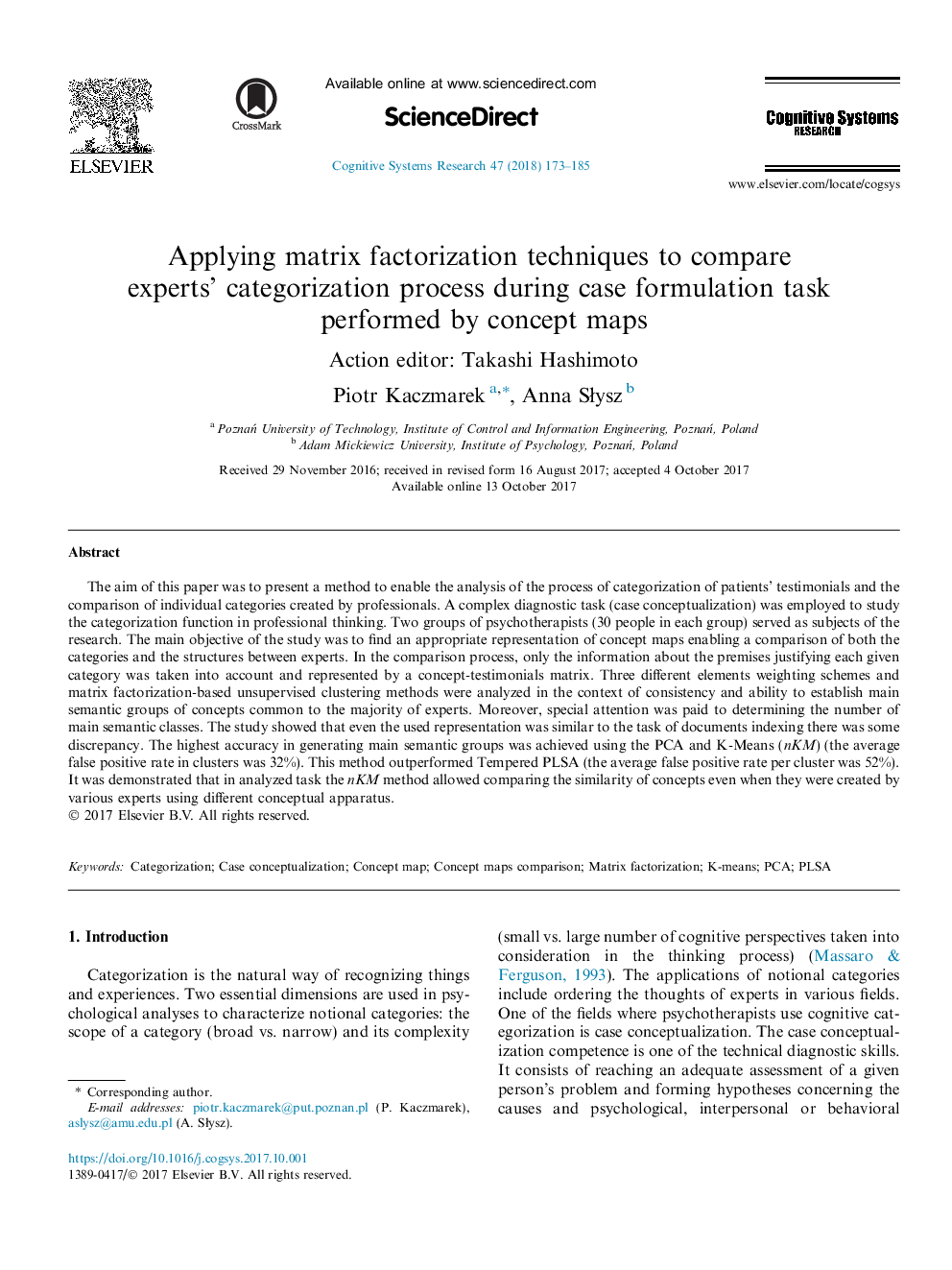| Article ID | Journal | Published Year | Pages | File Type |
|---|---|---|---|---|
| 6853815 | Cognitive Systems Research | 2018 | 13 Pages |
Abstract
The aim of this paper was to present a method to enable the analysis of the process of categorization of patients' testimonials and the comparison of individual categories created by professionals. A complex diagnostic task (case conceptualization) was employed to study the categorization function in professional thinking. Two groups of psychotherapists (30 people in each group) served as subjects of the research. The main objective of the study was to find an appropriate representation of concept maps enabling a comparison of both the categories and the structures between experts. In the comparison process, only the information about the premises justifying each given category was taken into account and represented by a concept-testimonials matrix. Three different elements weighting schemes and matrix factorization-based unsupervised clustering methods were analyzed in the context of consistency and ability to establish main semantic groups of concepts common to the majority of experts. Moreover, special attention was paid to determining the number of main semantic classes. The study showed that even the used representation was similar to the task of documents indexing there was some discrepancy. The highest accuracy in generating main semantic groups was achieved using the PCA and K-Means (nKM) (the average false positive rate in clusters was 32%). This method outperformed Tempered PLSA (the average false positive rate per cluster was 52%). It was demonstrated that in analyzed task the nKM method allowed comparing the similarity of concepts even when they were created by various experts using different conceptual apparatus.
Related Topics
Physical Sciences and Engineering
Computer Science
Artificial Intelligence
Authors
Piotr Kaczmarek, Anna SÅysz,
